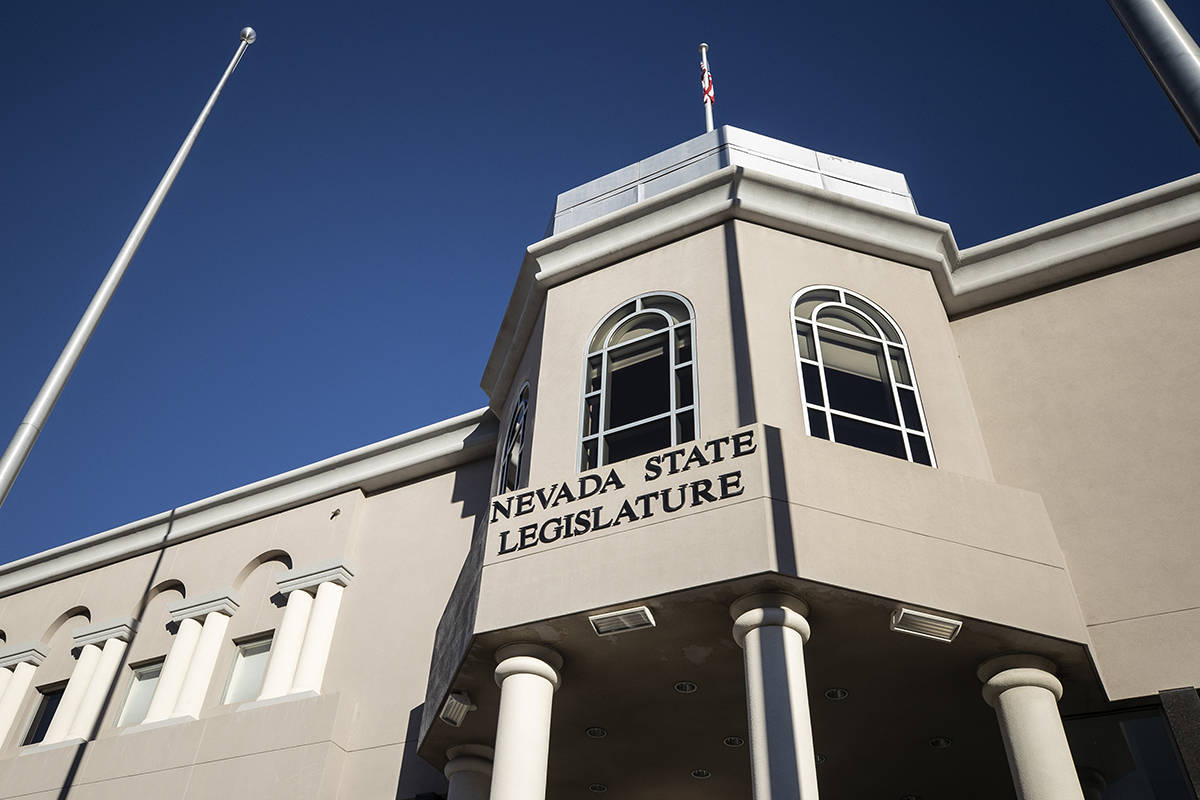A tale of 2 bills: 1 killed, 1 resurrected in Legislature
CARSON CITY — One signature bill died, and the ghost of another sprung back to life. Such rites of passage this week are to be expected in that great circle of lawmaking life that is the state Legislature moving into its final month of session.
The casualty, to no one’s real surprise, was Gov. Steve Sisolak’s long-shot economic development proposal that would have allowed deep-pocketed tech companies to form their own standalone local governments. The governor’s proposed “innovation zones” plan came in his State of the State address in January.
When the details emerged, so did the long knives, from progressives, rural counties, environmental groups, even late night TV hosts. The proposal never was officially introduced and thus died in the crib, replaced with an interim study of the idea — the Legislature’s go-to move with provocative proposals.
On the plus side — for progressives, anyway — was the resurrection of a once-vetoed, oft-studied plan to create a public health insurance option that could help some of Nevada’s 350,000 uninsured residents obtain coverage. The program passed the Legislature in 2017 but met then-Gov. Brian Sandoval’s veto. The concept flatlined in the 2019 session when its leading advocate was forced to resign his seat, but it held onto life as — you guessed it — a study.
The bill is scheduled for a hearing Tuesday. With Democrats controlling both the Legislature and the governor’s office, chances are good it will be enacted into law this year. As proposed, it would take effect in 2025 after a period of data collection and possible tweaking.
Floor action in both houses was minimal during the week as committees geared up for the home stretch of bill hearings, but the Assembly voted on a measure that would turn off the taps on watering grass grown only for decoration, such as on highway medians. Residential lawns and parkland or recreation areas wouldn’t be affected. The plan, which could conserve 12 billion gallons of scarce water annually in the former desert that is the Las Vegas Valley, picked up bipartisan support.
Somewhat off the legislative calendar came results of a state commission’s report — a study authorized by the Legislature in 2019 — that recommended increasing property, sales and use taxes to better fund education. Reaching or besting the national per-student average funding level would take a $2 billion to $3 billion investment over a decade, the study group found.
Looking back, moving ahead
The Legislature starts its final month on Monday with more than 90 bills scheduled for action or hearings in the coming week, and more likely. As one controversial proposal died this week and another came back to life, lawmakers sought with another to put a stake through a vestige of past racism.
A bill that would ban the use of racially discriminatory place names that passed the Assembly in mid-April is due for amendment in the Senate that would ban so-called municipal “sundown sirens,” which originally signaled the hour when nonwhites had to be out of town. They remain in use today out of longstanding habit, as does one in the town of Minden in Douglas County.
The amended Assembly Bill 88 would ban sirens that “required persons of a particular race to leave the county or a city, town or township within the county by a certain time.” It is likely to pass before the sun sets on the 81st session on May 30.
Contact Capital Bureau reporter Bill Dentzer at bdentzer @reviewjournal.com. Follow @DentzerNews on Twitter.



















